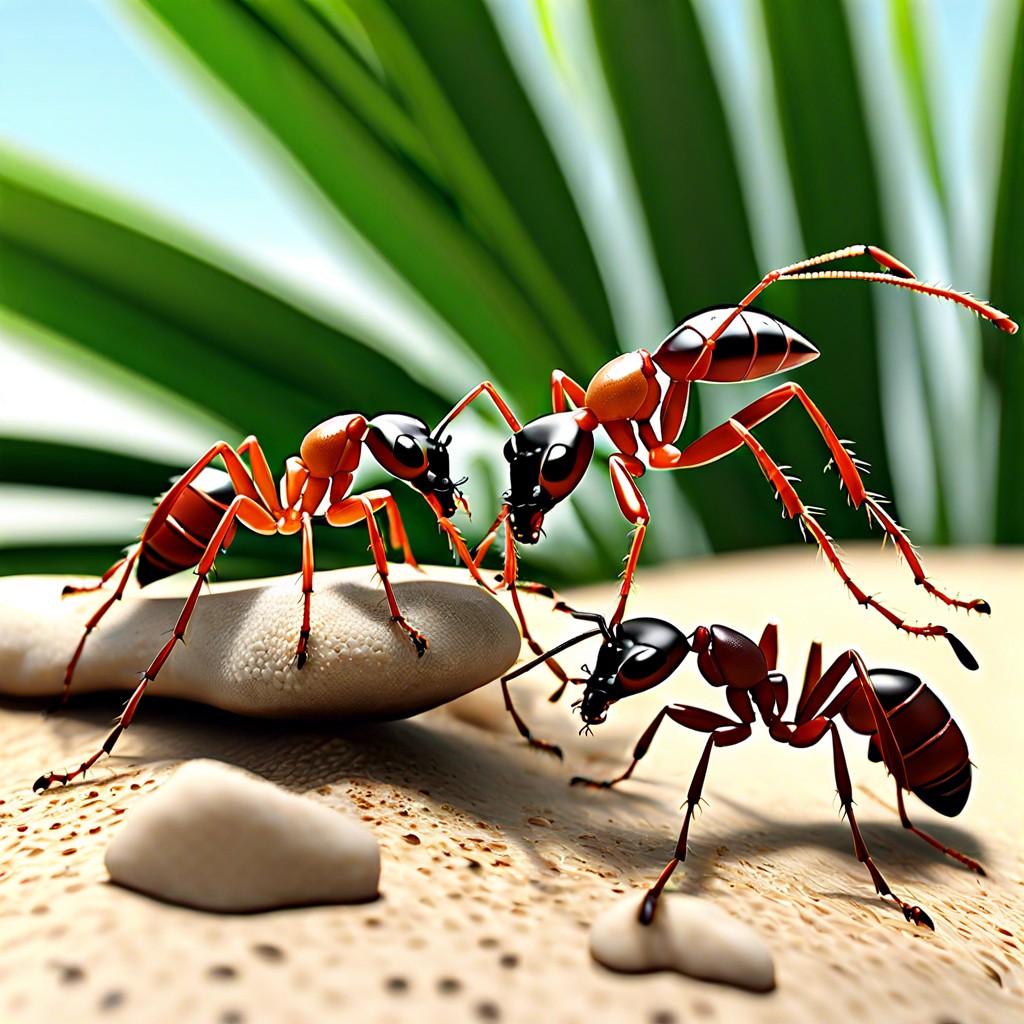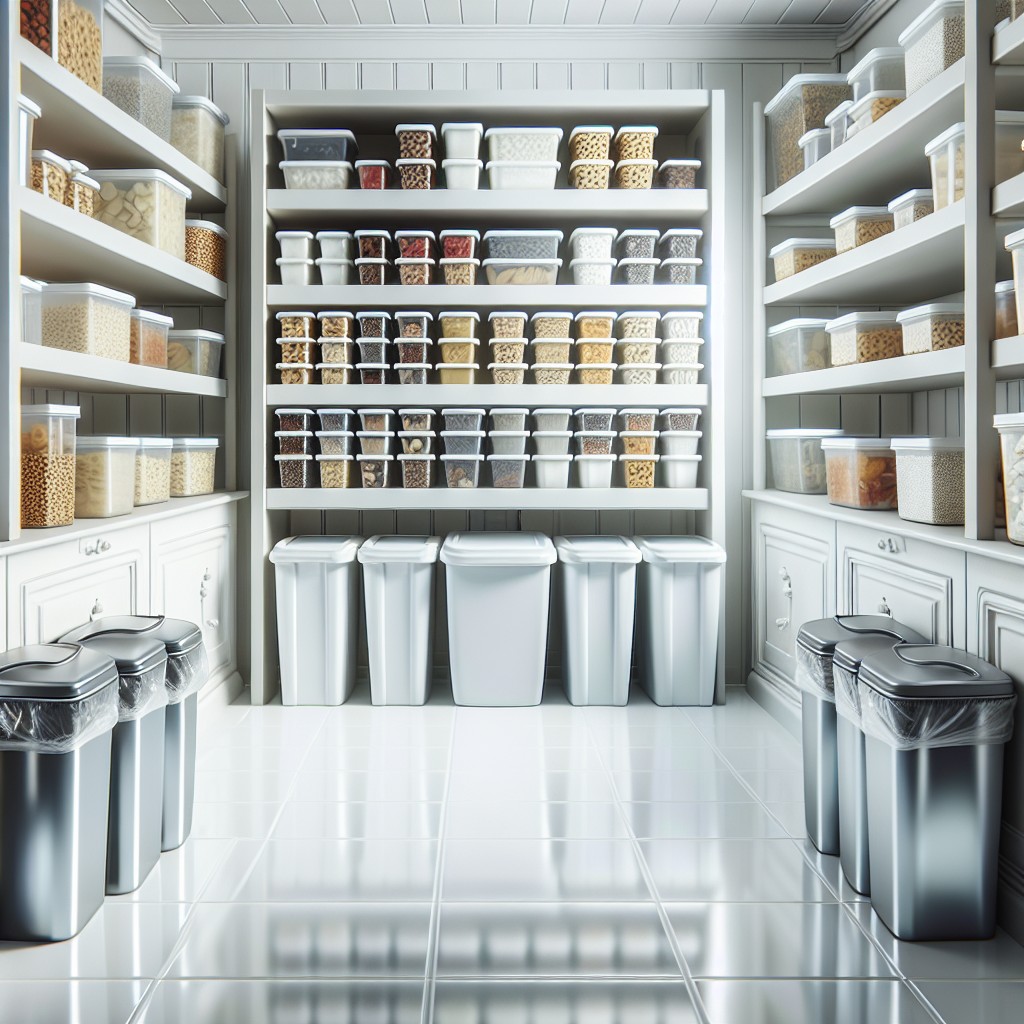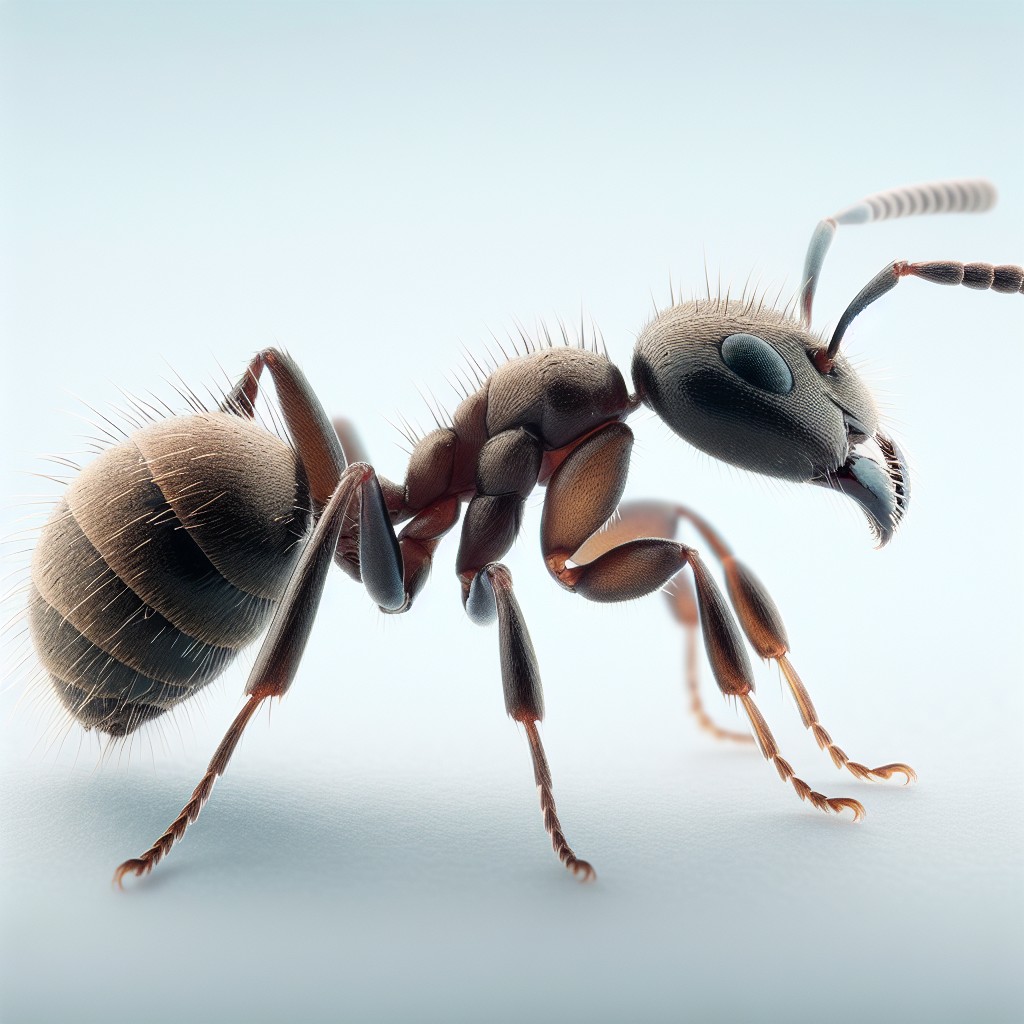Last updated on
If gnats have invaded your space, learn quick and easy methods to eliminate them from your house in this informative how-to guide.
Key takeaways:
- Create vinegar traps to catch and eliminate gnats.
- Maintain low humidity in your home to discourage gnat survival.
- Keep drains clean and dry to prevent gnats from breeding.
- Locate and eliminate breeding sources such as overwatered soil and decaying produce.
- Consider professional extermination services for severe infestations.
What's Inside
Vinegar Traps

Creating a vinegar trap is a simple and effective way to deal with gnats in your home. These pesky insects are attracted to the scent of apple cider vinegar – it’s like fast food to them.
To make a DIY trap, fill a bowl with equal parts water and vinegar then add a drop of dish soap. The soap decreases the water’s surface tension, causing gnats to sink and become trapped once they land on the surface.
For an even more effective trap, cover the bowl tightly with plastic wrap and poke small holes on the top. Gnats will find their way in but won’t be smart enough to escape. Place these traps near gnat-prone areas such as fruit bowls, plants, or garbage containers.
Remember, patience is key – it might take a night or two for the gnats to swarm to your trap, but the results are worth the wait.
Maintain Low Humidity in Your Home
Controlling indoor humidity levels is crucial in creating an unwelcoming environment for gnats. These pests thrive in moist conditions, so a drier ambiance will discourage their survival.
Here are some effective strategies:
- Utilize dehumidifiers: Strategically placing dehumidifiers in damp areas like basements, bathrooms, and kitchens reduces the overall moisture in the air.
- Ventilate: After showering or cooking, turn on exhaust fans to expel the steam and moisture that gnats find appealing.
- Fix leaks promptly: Address dripping taps or leaking pipes to prevent gnat-friendly puddles from forming.
- Over-watering is a no-no: Be mindful of not overwatering houseplants, as the excess moisture in the soil provides an ideal breeding ground.
- Store fruits and vegetables properly: Overripe produce emits gases and moisture that attract gnats. Keeping these items refrigerated or properly covered will help in keeping the humidity at bay.
These proactive steps will significantly decrease the likelihood of a gnat infestation by targeting one of their favorite conditions: high humidity.
Keep Drains Clean and Dry
Gnats are attracted to moisture and organic material, which your home’s drains provide in abundance. Ensuring drains are not a hospitable environment for gnats is crucial. Here are some easy steps you can take:
1. Boiling Water: Once a week, pour boiling water down the drain. This helps to kill eggs and larvae.
2. Baking Soda and Vinegar: For a deeper clean, first pour down a half cup of baking soda, followed by a half cup of vinegar. After letting it sit for an hour, flush the drain with hot water.
3. Brushing: Use a stiff drain brush to scrub inside the drain to remove gnat-friendly grime.
4. Drain Gel: Regularly apply a commercial drain gel, which is designed to clear out organic build-up in pipes.
5. Keep it Dry: After use, wipe down sinks and tubs to eliminate excess moisture. Use a plug to seal the drains when they’re not in use.
Regular maintenance prevents gnats from finding a breeding ground, mitigating future infestations. Remember, a dry drain is your goal.
Locate and Eliminate Breeding Sources
Identifying and eradicating the breeding grounds is crucial to solving any gnat infestation. These pests are attracted to moisture and organic material where they can lay eggs. Investigate houseplants for overwatered soil, as this can be a prime location for gnat larvae. If you find larvae in the soil, allow it to dry thoroughly before the next watering.
Check for fruits and vegetables left unrefrigerated; overly ripe or decaying produce can host a gnat nursery. Make it a habit to dispose of any decomposing food promptly and store produce in the fridge or sealed containers.
Don’t overlook garbage bins; they can be a festival for gnat reproduction. Ensure that all kitchen waste is sealed tightly in bags and that bins have firmly fitting lids.
Pay special attention to areas you might not immediately consider, such as sink overflows and plant saucers. These can accumulate water and organic debris, providing an oasis for gnats to thrive. Regular cleaning and dry-up routine will help in removing such unintended gnat havens from your home.
Professional Gnat Extermination Services
When home remedies just don’t cut it, it’s time to consider bringing in the experts. Professional exterminators have the equipment and expertise to handle severe infestations swiftly and effectively.
Here’s a glimpse into what they offer:
- Targeted Treatments: Exterminators assess the specific type of gnat plaguing your home and apply treatments tailored to eliminate that species.
- Industrial-Grade Pesticides: The chemicals used by professionals are often more powerful than over-the-counter options and can provide a longer-term solution.
- Source Elimination: Experts will identify the root of the problem, such as moist breeding grounds, and take steps to eradicate these habitats.
- Preventive Advice: Post-treatment, professionals can offer invaluable advice on preventing future infestations, ensuring your home remains gnat-free.
Opting for professional services can save time and provide peace of mind, leaving your home protected against future invasions.




